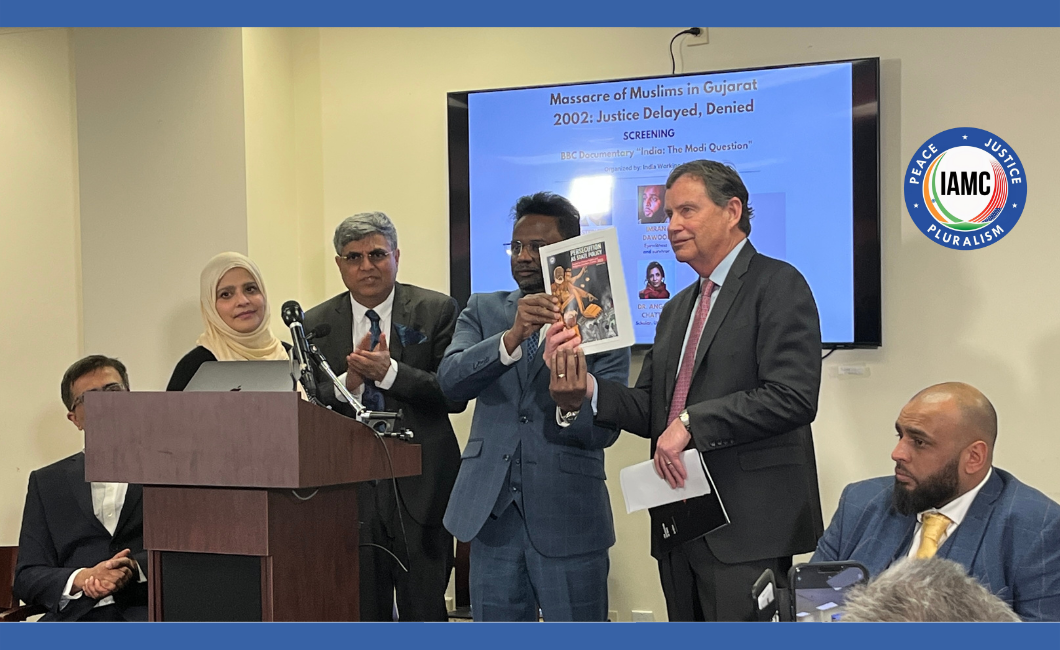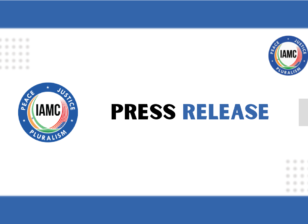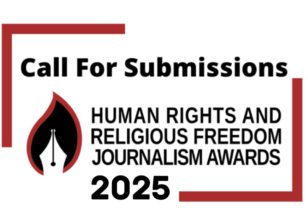US must condemn Modi’s anti-minority policies, says USCIRF Commissioner Steve Schneck at Congressional Briefing on Gujarat Pogrom
Washington, D.C. (March 1, 2023) — United States Commission on International Religious Freedom (USCIRF) Commissioner Stephen Schneck called on the US government to condemn Prime Minister Narendra Modi‘s regime for its egregious violations of human rights and religious freedoms.
“The Indian government at the local, state, and national level continues to create policies that negatively impact Muslims, Christians, and other religious minorities,” said Commissioner Schneck.
“Application of these policies has created a culture of impunity for national campaigns of violence against Muslims and Christians. The U.S. must designate India a country of particular concern. We at USCIRF continue to press President Biden and congress to do so.”
Commissioner Schneck made these remarks at a congressional briefing organized by the India Working Group (IWG) on Capitol Hill this Tuesday. IWG is a working group of the International Religious Freedom Roundtable.
Other discussants at the congressional briefing highlighted how PM Modi’s policies have led to massive loss of life and property for Muslims, Christians, and other minorities. These policies form the central focus of an Indian American Muslim Council (IAMC) report titled, “Persecution as State Policy” which provides detailed accounts of violence by state and non-state actors against religious minorities in India.
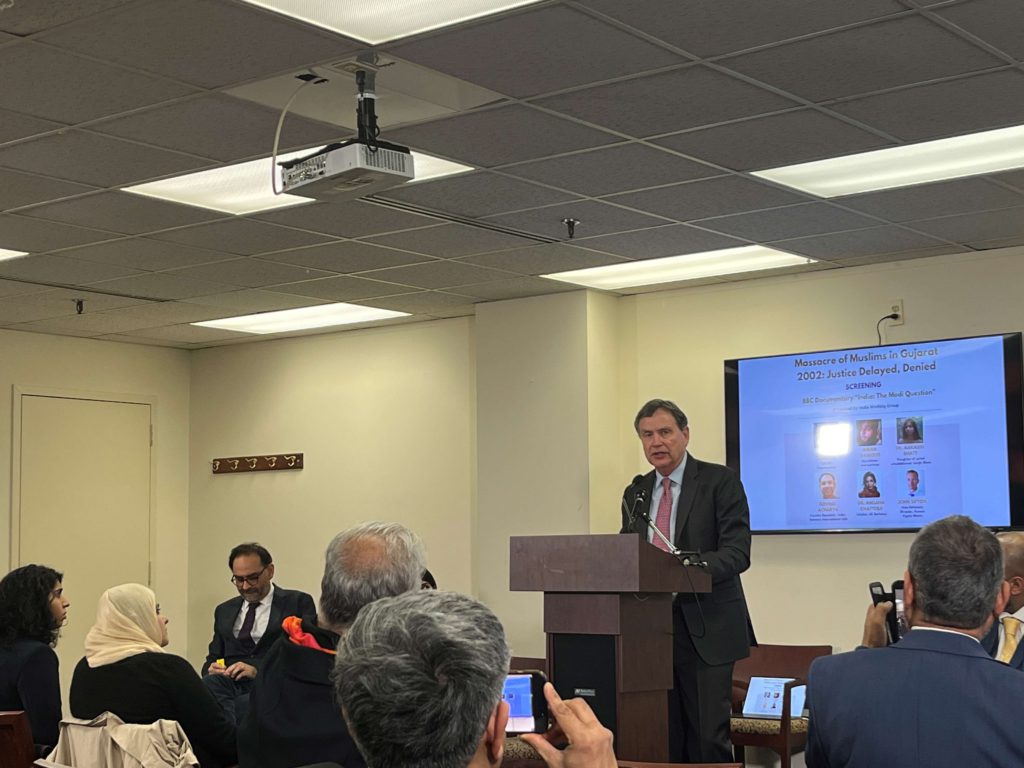
The briefing also marked the 21st anniversary of the 2002 anti-Muslim pogrom in Gujarat by featuring a screening of the BBC documentary “India: The Modi Question,” which exposed PM Modi’s role, who was then the chief minister of the state in enabling the violence.
Pogrom eyewitness and survivor Imran Dawood shared his powerful testimony in the documentary and with congress members. “My human dignity was taken away from me in Gujarat. I was forced to disrobe and show that I was circumcised by Hindu mobs. It was like in Nazi Germany. This should never happen again,” he said.
While serving as chief minister of Gujarat state, Modi ordered police to stand down and “allow Hindus to vent their anger” as violent Hindu-supremacist mobs slaughtered more than 2,000 predominantly Muslim Indians, destroyed more than 350 Mosques, and razed 20,000 Muslim-owned properties. Rioters beat Dawood and left him for dead before killing his two uncles as well as their family friend.
“The trauma will always be with me but I won’t be defined by it. We must oppose the BJP’s hateful bulldozer policies,” Dawood said, referencing the BJP’s ongoing and extensive use of bulldozers to destroy Muslim-owned properties.
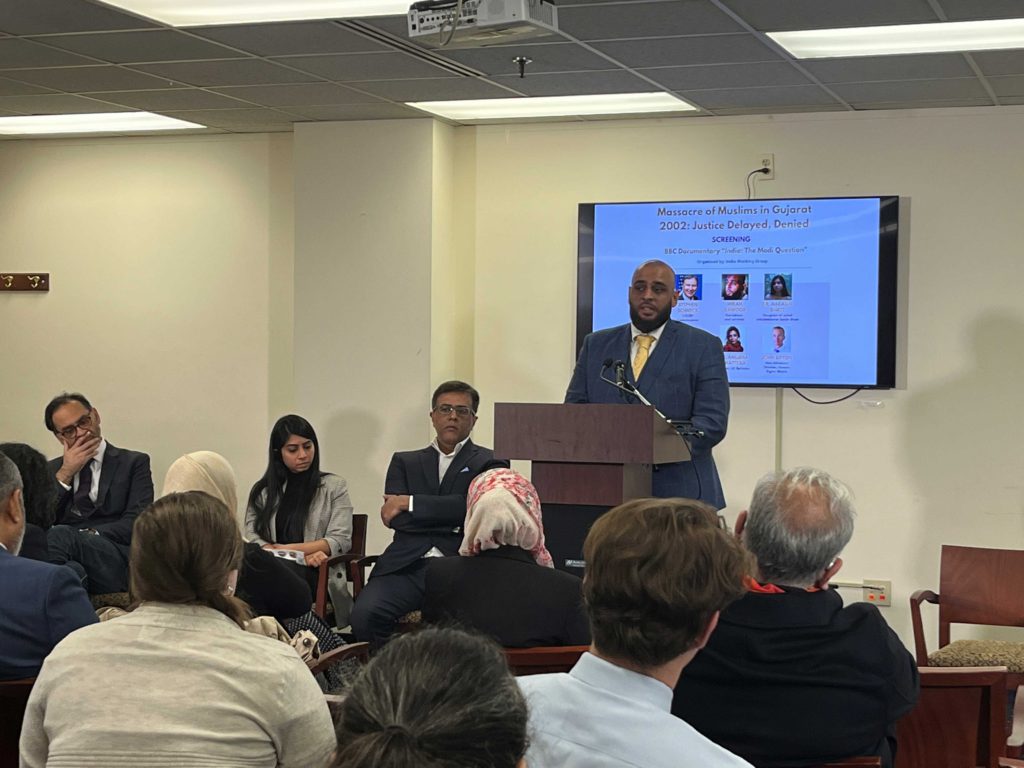
Aakashi Bhatt, daughter of jailed whistleblower and former senior police officer Sanjiv Bhatt, discussed her father’s attempts to expose Modi’s role in the pogrom. Sanjiv had met with Modi during the three days of violence that rocked Gujarat and later testified to the Indian Supreme Court that Modi had ordered police to let violent mobs kill Muslims. Sanjiv Bhatt was fired from his post shortly after Modi was elected Prime Minister in 2014 and sentenced to life imprisonment in 2019 on bogus charges.
“My father was framed and incarcerated for a crime he did not commit. His only crime was holding Modi and Amit Shah [Modi’s close political advisor] accountable for their heinous crimes,” Bhatt said of her father.
“Anyone who still thinks India is a democracy, they are in deception. A country that does not allow people to exercise their own religion, thought, speech, where one tweet can mean prison time, where your choice of food or spouse can result in you being lynched in broad daylight, where every media outlet is controlled by the regime — this is not a democracy. This is a dictatorship,” she added.
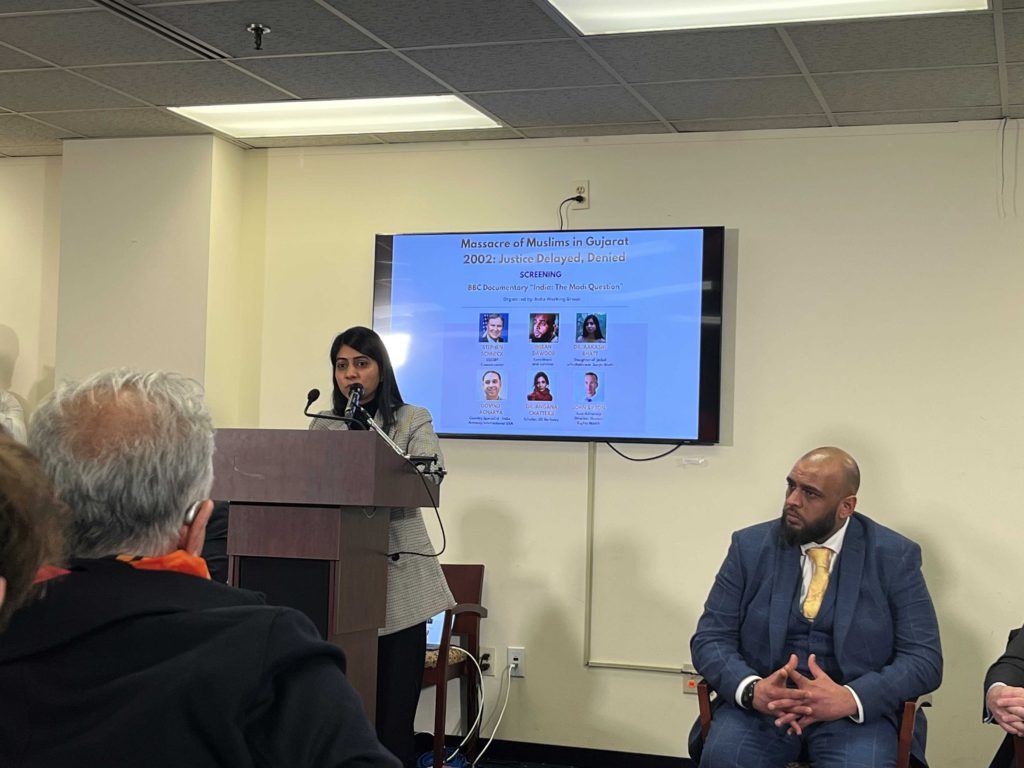
Govind Acharya, India specialist for Amnesty International, also underscored India’s increasingly authoritarian tendencies. He condemned the U.S.’s reversal of its once condemnatory stance towards Modi, saying, “In 2005 the Bush administration denied Modi a Visa in recognition of his severe violations of religious freedom. He was a pariah. Now Modi is an integral part of the quad. Secretary Blinken will be in Delhi greeting Modi as part of G20 meetings. I invite everyone to see if human rights are on their agenda.”
Acharya further said, “there’s the injustice of Gujarat, and the decades of impunity that stemmed from the impunity of Gujarat.” He cited Modi and his Bharatiya Janata Party’s (BJP) increasing use of bulldozers to demolish Muslim and Christian homes, the government’s use of sham financial charges to freeze the bank accounts of Muslim, Christian, and civil rights NGOs, and their weaponization of the love jihad conspiracy, which has led to violence and widespread criminalization of interfaith Hindu-Muslim marriages in BJP-ruled states.
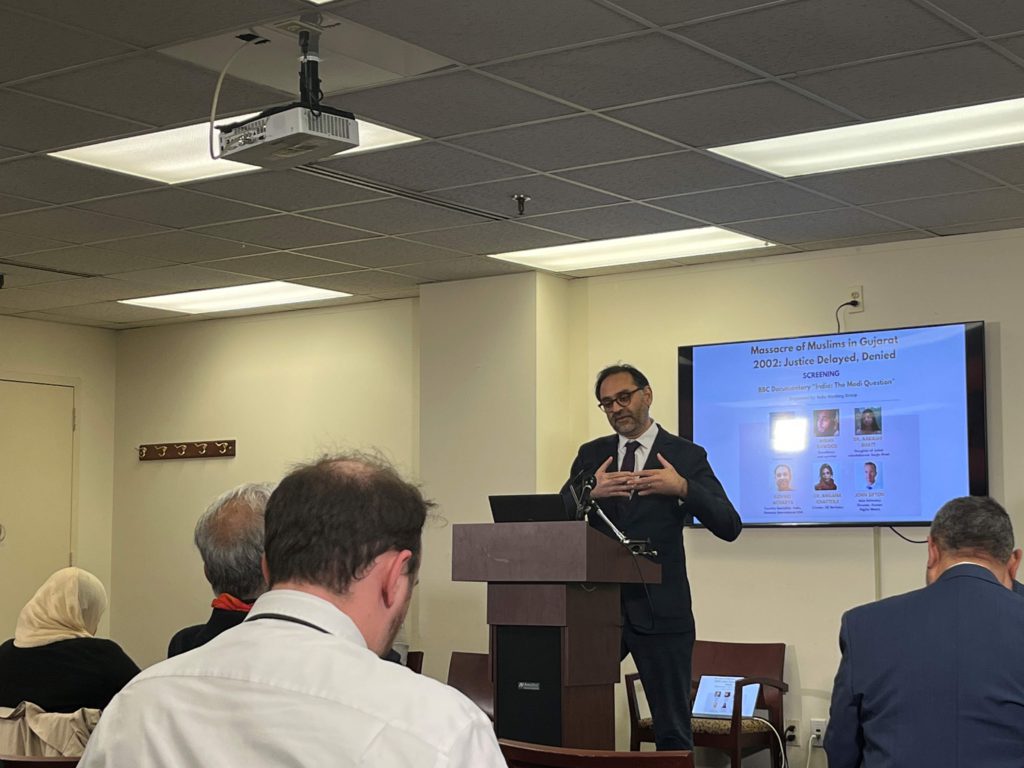
“The pogroms left deep scars on Indian American consciences,” said IAMC Associate Director Amin Zama in closing. “We call on congress to push for a transparent and impartial investigation into the Gujarat pogrom and to prosecute those responsible for the crimes.”
International Society for Peace and Justice president Dr. Rehan Khan called on the United States government to officially declare Gujarat 2002 pogrom as genocide.
“This is the 21st anniversary of the Gujarat mass murder. Why are we talking about this 21 years later? Because the cycle of violence has not stopped yet. Hindu rightwing groups are terrorizing minorities,” Dr. Khan said.
“We also call on the US government to designate Vishwa Hindu Parishad and Bajrang Dal as terrorist organizations,” Dr. Khan added.

